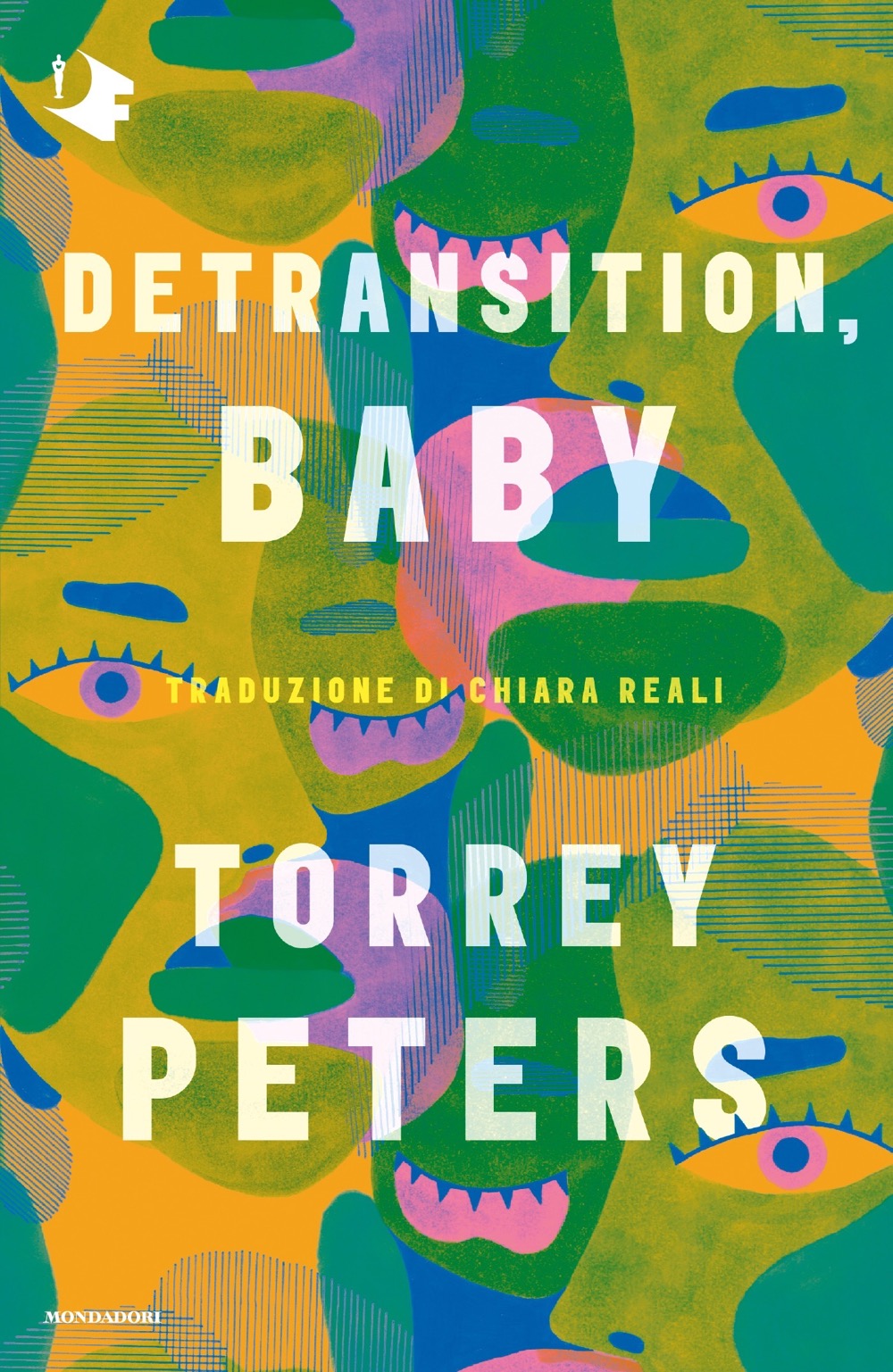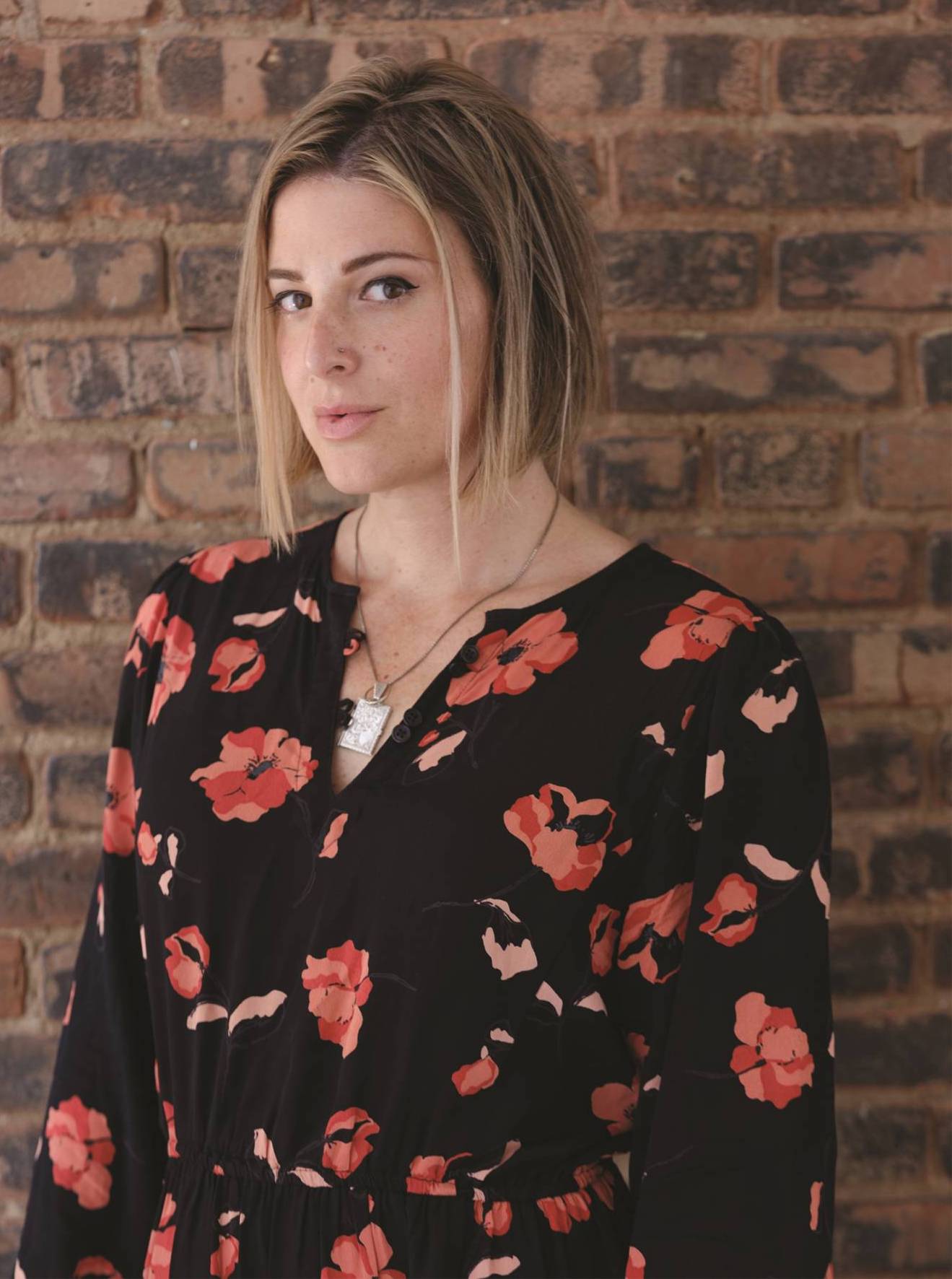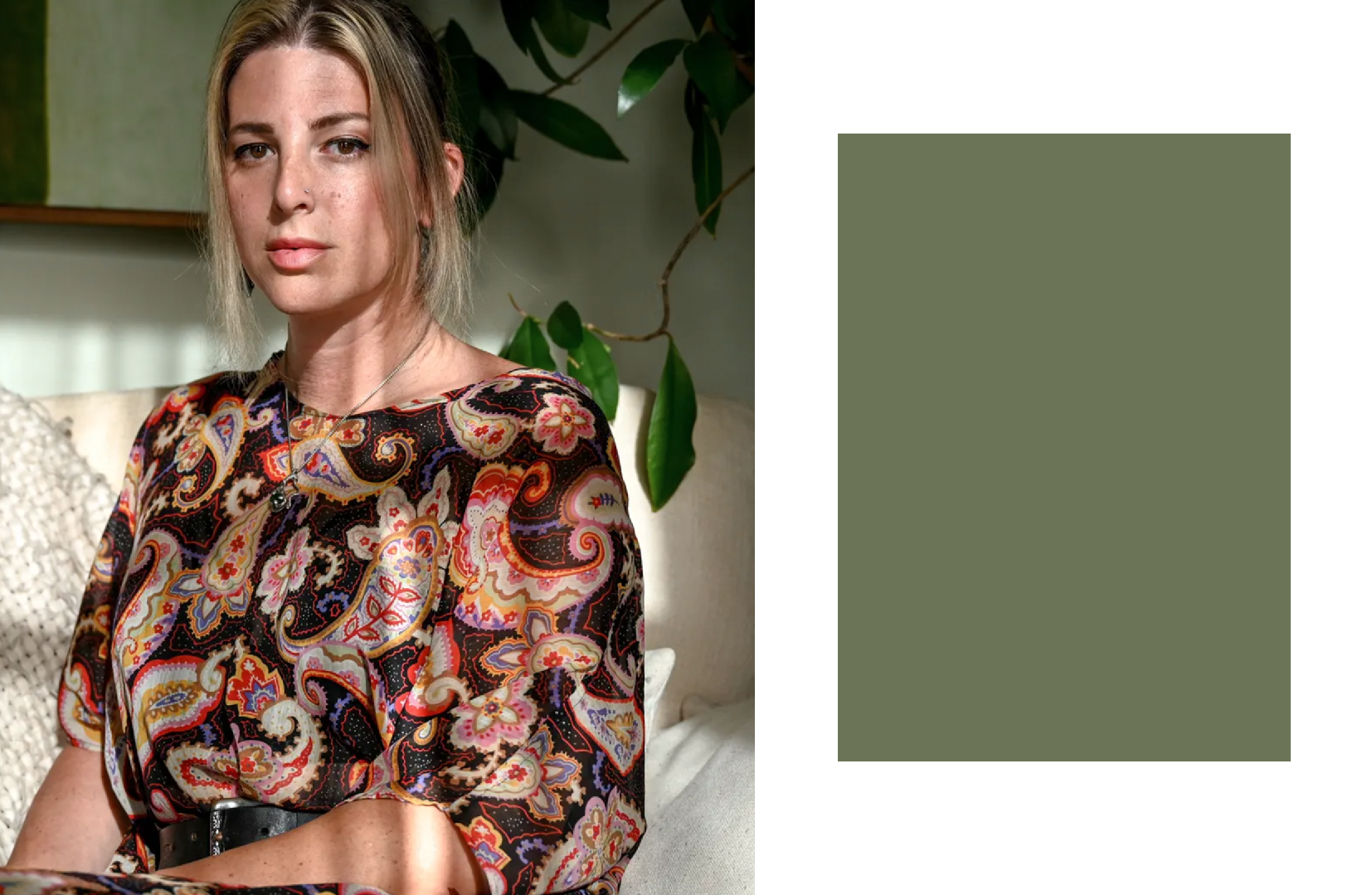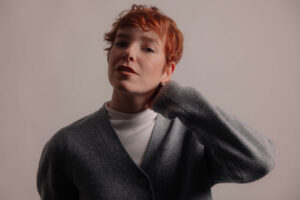Reese, Ames, and Katrina are three fictional characters but, at the same time, three people with real, shareable, and understandable problems in 2023. In search of pieces to give meaning to their lives, they are involved in three different paths that meet in front of the possibility of creating a family together. Being trans, having done the detransition, and being pregnant are the three conditions that overlap, with all the worries, problems, hopes, and desires that follow. Three individuals become one, finding themselves facing the questions, doubts, and fears of their future both together and individually, in a different light but without ever forgetting their humanity.
Torrey Peters is an author but, at different times of her life, she has also been Reese, Ames, and Katrina, and the set of these voices gave life to her novel “Detransition, Baby“: honest in a brutal way, something that we should read more often to realize how many and which may be the problems of everyday life affecting each of us. The story is about going beyond stereotypes and heteronormativity to recognize the human nature behind every choice (and non-choice). Between the responsibilities involved in choosing to be happy, the importance of mistakes, and the various forms of honesty, Torrey Peters talks about existing with absolute transparency both in his novel and through the answers she gives to our questions. Reminding us how destabilizing freedom can be.
First and foremost, congratulations on this book and for its complexity. Such a book in Italy, as of now, would be a very politically-driven book, especially for children in “non-normalized” families, as one of the protagonists likes to say. Reading your book, what I’ve admired the most was your focus on the characters’ introspection, so its shift from politics to the personal sphere. It’s an insight carried out inside a family in the making which is inventing a new way of being a family. I wanted to ask you if this was due to a difference of the American situation in what concerns queer families, on which perhaps in Italy we’re still significantly late, or if in America, as well, in families and in particular for what concerns children in queer families, this huge political problem exists, or if your focus was something else.
I think that any time you have a trans book, it’s going to be interpreted politically, but the book for me was personal to write. I was in my thirties when I was writing it and I was basically trying to figure out: “Okay, how am I going to live and how am I going to ask myself a series of questions honestly?”. If you think about the form of the book, there are three people in a room at the beginning saying, “Can we make a family together?” and there are three people in a room at the end of the book saying, “Can we make a family together?”. By that metric, it looks like nothing happened, right? But what’s actually happening is that the characters are stripping away a lot of the narratives that can exist around them, the coping mechanisms that they have for their life, by the end they have to tell themselves the truth. A lot of the point of the book, for me, is that it actually doesn’t particularly matter what the politics are, that each of the characters is bringing their own things, that Reese, for instance, is looking for a man who’s going to save her and that’s not going to work, meanwhile, Katrina is trying out queerness. So, I’m basically trying to say that figuring out how to live a meaningful life involves interrogating what is correct for a particular person. It’s not like we don’t want politics, so you just pull a different politics off the shelf: you have to ask yourself, “What is really tolerable for me? In what ways am I going to compromise? In what ways do I have to say no?”.
So, what I’m asking readers to do is to ask themselves those questions with a wider ray of possibilities that includes queerness or even perhaps coupledom as we’ve known it, but to be honest about what that stuff involves, to not just simply inherit your heteronormativity, nor to just pick up queerness as it comes.

I read another book that focused on transition where, at some point, one of the characters says: “When I wake up in the morning and think about my whole journey, I feel happy”. Reading this book, though, I have a feeling that the characters are unhappy; they make this research, try and dismantle the build-up of prejudices that we have, but the road to happiness, as long as it exists and it’s viable, still seems to be far away.
Well, I think that’s part of the point, that trans people don’t only live to be trans, in fact being trans is a very small part of my life. What transition does is it simply gets me into a place to begin to confront the other questions of my life. So, the issue for these characters is not, “Should I transition? What is my gender?” and these sorts of things, but the same things that face other adults. So, the transition gets you into a place where you can ask questions like, “How can life have meaning?”, the same as everybody else, “Should I have a family? Should I have a job? Should I have a lover?”. It doesn’t matter if you’re trans or not, if you can’t answer those fundamental questions, transition is not going to save you. These characters have solved transition but they haven’t solved life. Additionally, I think it’s important to start being able to write characters who are trans that aren’t necessarily representative of all trans people or make a political argument. The idea that you transition to be happy is in some ways something that people say in order to convince people that it’s okay to transition, it’s to confront bigotry, but if it wasn’t bigotry, you wouldn’t necessarily have to make that argument, that it’s quite an instrumental argument, it’s an argument to justify trans people. I already exist, I’ve already transitioned, and so as an artist, I’m not very interested in justifying my existence; I’m happy to say I’m here, I have the same realistic problems as every other person, and to say how I am specifically going to solve those problems. I actually am a happy person but I don’t think it’s my responsibility as a trans person to be happy.
This is apparently why I’m interested in analogies between cis women and trans women. For instance, one could analogize the idea of transition with something like marriage, that view/thought that “Okay, you get married and now your problems are solved”, but you’re going to be disappointed; that marriage may be the beginning and then you’ve got a whole bunch of work after you get married. Similarly, you transition and that’s the beginning and then you’ve got a whole bunch of work after that.
I don’t know the book that you’ve read, but this is also the difference between adult literature and YA literature: in a YA book, the questions are, “Can I come out? Am I going to be a person?” and that opens up through the rest of life, whereas in an adult book, lots of times you have to solve the problems of the difficulty of relating to other humans as you go through your life.
The story shows us that a family is not where you are born, but, especially, where you feel safe and understood. Being part of a family and being your true self: how these researches are intertwined? Like, it takes a lot of strength and courage to find both of them in life, because it’s not always easy to find your place in the world, both as an individual and part of a group.
For me, the connection is honesty and commitment, and I don’t mean that honesty translates into being honest to yourself, it oftentimes means being honest with your misgivings, as well, when things aren’t working. For instance, Ames made the commitment to transition, and then the reality is that Amy wasn’t happy living as a woman because life was very difficult so Amy said, “I can return to life as a man”. That’s a kind of honesty, the count out of commitment, and I think that making a family is in some ways the same. You have to be honest about what you can actually tolerate: Katrina, in her case, couldn’t tolerate the fact that Ames might retransition, and Reese potentially couldn’t tolerate sharing the role of mother; then, even if they did decide that they would tolerate it and they made this commitment in which there’s another life, then they have to continue to be honest about what is working and what is not.
It’s not simply that you transition and that’s it forever, you have to be able to be honest about whether something’s not working, or that you make a family and that family model that you have becomes your family forever, you have to continue re-evaluating and that revaluating is uncomfortable; it’s uncomfortable to get married and then say, “Actually, I need to divorce”, that’s why this book is dedicated to divorced women because the strength, and the philosophy and the clear-eyedness that it takes to both make the commitment in the first place and then be willing to undo the commitment that you’ve made for me is the most important connection not just between these two things but also a connection that forms a woman that these characters are all striving towards.

“I already exist, I’ve already transitioned, and so as an artist, I’m not very interested in justifying my existence; I’m happy to say I’m here, I have the same realistic problems as every other person, and to say how I am specifically going to solve those problems. I actually am a happy person but I don’t think it’s my responsibility as a trans person to be happy.”
You chose to focus on the theme of the de-transition of the perhaps most complex character among the three, James, who then becomes Amy who then becomes Ames. I loved this wordplay with the names, I think it’s important. My question is: how significant and determining can our choices be for other people’s lives? And how important can this be? If we consider James, for example, his transition has had certain consequences, and his de-transition has had other consequences which don’t only concern him but also the people around him, before, after, and during the process.
I think you’ve understood it well, especially what concerns James. There was a wordplay there, James-Amy-Ames: when Amy de-transitions, she doesn’t go exactly back to the original character of James, but even in the name there’s a difference. What I’m saying is that de-transition, as I understand it, is not simply a binary where you go one way and then you come back, I see de-transition as a way to adjust where you are in the world and there’s a sort of arbitrary line that’s male-female, but most of the time, when people de-transition, they’re not doing it because they’ve made a mistake and they want to go back, but they’re doing it because they’re constantly adjusting who they are in the world at a particular moment and time, which is in fact what all of us do.
One in their 20s might be feminine, and then in their 30s might not be so feminine, or they may have changed the way they move through the world, and I think the same thing happens with trans people. There’s an expectation that if you’re trans you’re going to transition and you’re going to become that, but in fact lots of times you don’t exactly know, you don’t hit the target on the first try, you have to live through life and have the freedom to make choices and regret those choices and adjust your choices. Part of why I’m interested in the concept of de-transition in this book is the capacity for trans people to have regrets. We aren’t forces of nature, we don’t know everything all the time, oftentimes we are wrong, and by being wrong you can actually adjust, you make mistakes and you make your life better; if you don’t give trans people the option to be wrong, then we can never change, we can never improve our lives.
Did you have all of the characters in your mind ready from the very first moment when you decided to write this book, or did they evolve/surprise you somehow during the writing process? And did you discover anything new about yourself while writing about Ames, Reese, and Katrina?
First, I had the voice of Reese right from the start, that bitchy voice was easy for me and I was writing the story largely from Reese’s point of view. What happened is that I went to Mexico with a friend of mine, there I was getting trans surgery and this was at a time when it was easier to get surgeries in Mexico than in the States, so we went to Guadalajara when I had not yet had my passport changed, so it was male and as a result I was afraid of going through customs; I had an old suit, which is the same suit that Ames has, so I went to customs, I put on this sort of “Reservoir Dogs” suit and I went through customs to avoid creating problems with my passport; I get to the other side and I learnt they’ve lost my luggage, so I basically spent a week in Mexico wearing this black gangster suit and I began to feel very dissociated from myself; on one hand, I really liked that I remembered how it felt to move through the world as a man, how much respect was given to you, how much deference was given to you, like you could just walk into a store and people are not threatening, but on the other hand, I felt further and further away from something, like I was watching myself from above. The voice that began to narrate to me when I was in that suit in Mexico became Ames’s voice, I discovered Ames’s voice in Mexico. I also actually have written part of the book in Katrina’s voice, but it wasn’t working and I ended up keeping just the two. I think that the three voices end up corresponding to different aspects of myself at different points in my life; for instance, now I’m surprised to find that I most relate to Katrina, it’s her way of staying in the world, her need for stability and clarity that feels most the person I am now, and to Ames, I don’t relate at all anymore.
Thanks to Mondadori





